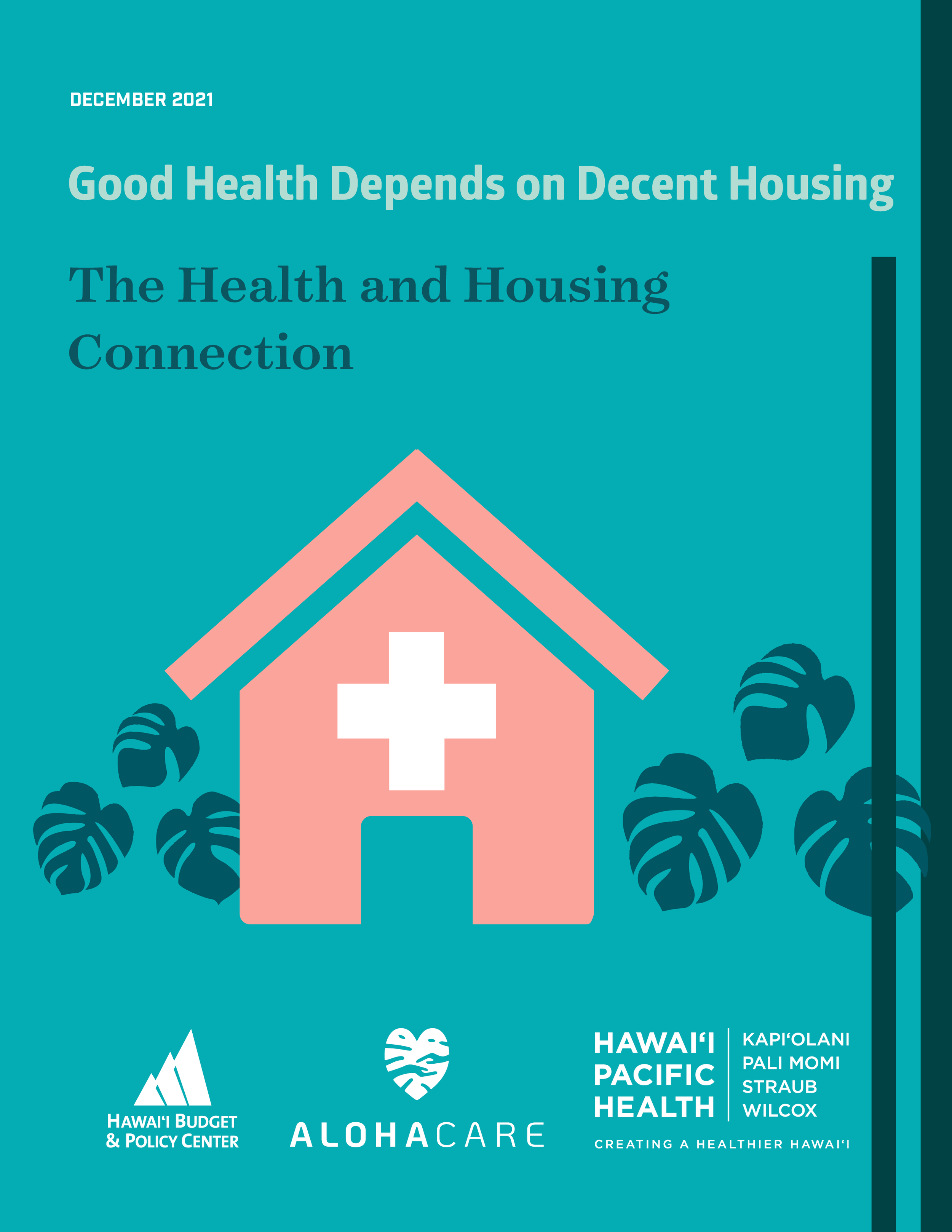The Health and Housing Connection
Good Health Depends on Decent Housing
Introduction
Poor health and income constraints are connected in a number of ways, but the effects of inadequate and insecure housing on health and wellbeing are especially notable.
Part One in a three-part series of Good Health Depends on Decent Housing policy briefs shows how chronic stress from insecure housing and living in a low-income neighborhood produces cumulative effects that result in mental and physical health problems. It also outlines health and socioeconomic disparities in Hawaiʻi, and makes it clear that by under-investing in human needs—such as housing—we pay a large price for healthcare.
Every person, every family needs a decent, secure home. Housing is the foundation for human dignity and wellbeing and this, in turn, profoundly influences health, economic mobility, and thriving communities. Underscoring this fundamental need, sociologist Matthew Desmond wrote that the development of affordable housing is “an antipoverty effort, human capital investment, community improvement plan, and public health initiative all rolled into one.”
Too often, the policy choice in the United States is to treat land and housing as a profit-generating commodity. In Hawaiʻi, this policy is most clearly demonstrated through the systematic separation of Native Hawaiians from their ancestral lands, and the very limited public effort that has been made to restore their rights to self-determination.
Because we have failed to recognize the transcendent value of land and homes to the wellbeing of individuals and our communities, we have not embraced a policy that protects the right to adequate housing for low- and middle-income families. Our housing policy failures clearly result in lifelong harm to the individuals affected, but the damage doesn't end there. These failures come at a high cost to all of us, and one of the most notable is expensive health disparities.

